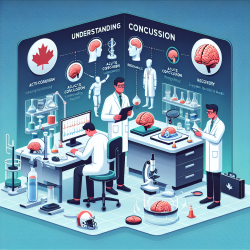Empowering Change: Bridging the Gap in Childhood Obesity Diagnosis
In the realm of pediatric healthcare, the accurate diagnosis and management of childhood obesity stand as a critical challenge. Recent research, "Comparison of ICD code-based diagnosis of obesity with measured obesity in children and the implications for health care cost estimates," sheds light on the discrepancies between ICD code-based diagnoses and actual measured obesity in children. This study underscores the importance of refining diagnostic practices to better address the health needs of our youth.
Understanding the Research
The study conducted by Kuhle et al. explores the sensitivity and specificity of ICD code-based obesity diagnoses in Canadian children, compared to the gold standard of measured BMI. The findings reveal a stark reality: ICD code-based diagnoses significantly underestimate the true prevalence of childhood obesity, capturing only 7.4% of cases. This misclassification not only affects prevalence estimates but also skews health care cost analyses, overestimating the cost differential between obese and non-obese children.
Implications for Practitioners
For practitioners, these findings highlight the necessity of integrating more accurate diagnostic tools and methodologies in clinical settings. Here are some actionable steps practitioners can take:
- Embrace Comprehensive Assessments: Utilize measured BMI as a standard practice for diagnosing obesity in children. This ensures a more accurate understanding of a child's health status.
- Enhance Training: Participate in training sessions and workshops that focus on the nuances of diagnosing obesity beyond administrative data.
- Advocate for Systemic Changes: Encourage healthcare systems to integrate more robust data collection methods that reflect true health conditions, not just billing codes.
- Collaborate with Schools: Work with educational institutions to promote healthy lifestyles and early intervention strategies.
Encouraging Further Research
The study serves as a clarion call for further research into diagnostic practices and their implications on healthcare delivery and cost. Researchers and healthcare professionals are encouraged to explore:
- The development of new diagnostic codes that better capture the nuances of childhood obesity.
- Longitudinal studies that track the impact of accurate obesity diagnoses on health outcomes over time.
- Interventions that effectively bridge the gap between diagnosis and management of obesity in children.
Conclusion
By addressing the discrepancies in obesity diagnosis, practitioners can play a pivotal role in improving health outcomes for children. Accurate diagnosis is not just a clinical necessity but a moral imperative to ensure that every child receives the care and attention they deserve.
To read the original research paper, please follow this link: Comparison of ICD code-based diagnosis of obesity with measured obesity in children and the implications for health care cost estimates.










